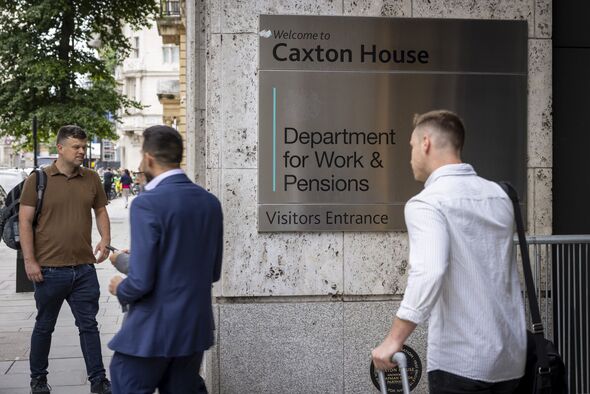
People struggling with “reduced” Universal Credit payments can claim more financial support from the DWP to help get by.
The Department for Work and Pensions (DWP) offers “hardship payments” for Universal Credit claimants whose benefits have been reduced due to sanctions or fraud penalties.
For those experiencing financial hardship due to a sanction, these payments can offer temporary relief for essential expenses while keeping their benefit reduction manageable.
These payments are designed to cover essential costs, but they must be repaid once the sanction period ends.
To qualify for a hardship payment, claimants must:
- Have been sanctioned and had their Universal Credit payment reduced at 100 percent of their standard allowance (50 percent or more if in a couple).
- Be 18 or older (16 if the reduction is due to a fraud penalty).
- Be experiencing financial hardship and struggling to cover essential needs like food, heating, hygiene, or housing costs not covered by Universal Credit.
- Have explored all possible sources of support and cut back on non-essential spending.
- Have complied with any work requirements or the compliance conditions for sanctions.
Hardship payments cover up to 60 percent of a person’s sanctioned amount per day and vary based on individual situations. For instance:
- If a person is sanctioned at £10.40 per day, their hardship payment will be calculated at 60 percent of this rate, or £6.15 per day.
- This payment is available for each day of hardship within the assessment period, and people can receive it until their next payment or until their sanction ends, whichever comes first.
When you cannot get a hardship payment
People cannot usually get a hardship payment if they are simply short of money or need to pay for an urgent expense.
They will also not be eligible if their Universal Credit is sanctioned at a lower rate. The lower rate is 40 percent of the person’s daily standard allowance, or 20 percent of their daily standard allowance if in a couple.
How to apply
People can apply for a hardship payment only after receiving a reduced Universal Credit payment due to a sanction. A new application is required for each assessment period in which they face hardship.
Applications can be made by:
- Contacting the work coach at the person’s local Jobcentre
- Using the Universal Credit online journal
- Calling the Universal Credit helpline.
Be prepared to demonstrate efforts to find other support, any savings or income sources, and the essential costs that are unable to be met.
For those in a couple, both partners must agree to accept and repay the hardship payment.
Repaying the hardship payment
Once the sanction or penalty ends, the DWP will automatically deduct up to 25 percent of the person’s standard allowance from future Universal Credit payments until the hardship payment is repaid.
For instance, if their standard monthly allowance is £393.45 and they received a hardship payment of £215.25, their benefit will be reduced by £98.36 per month until fully repaid.
For those who are no longer on Universal Credit, DWP Debt Management will arrange an affordable repayment plan. Claimants struggling to repay can also contact DWP for assistance with adjusting their repayment terms.
















